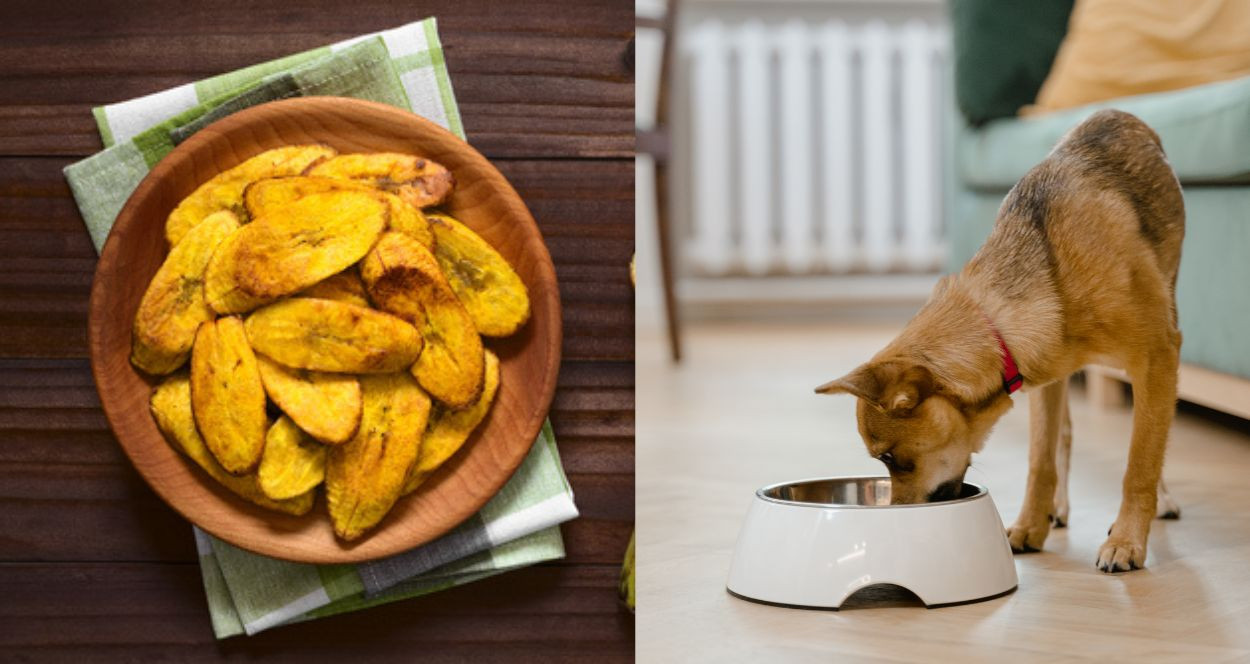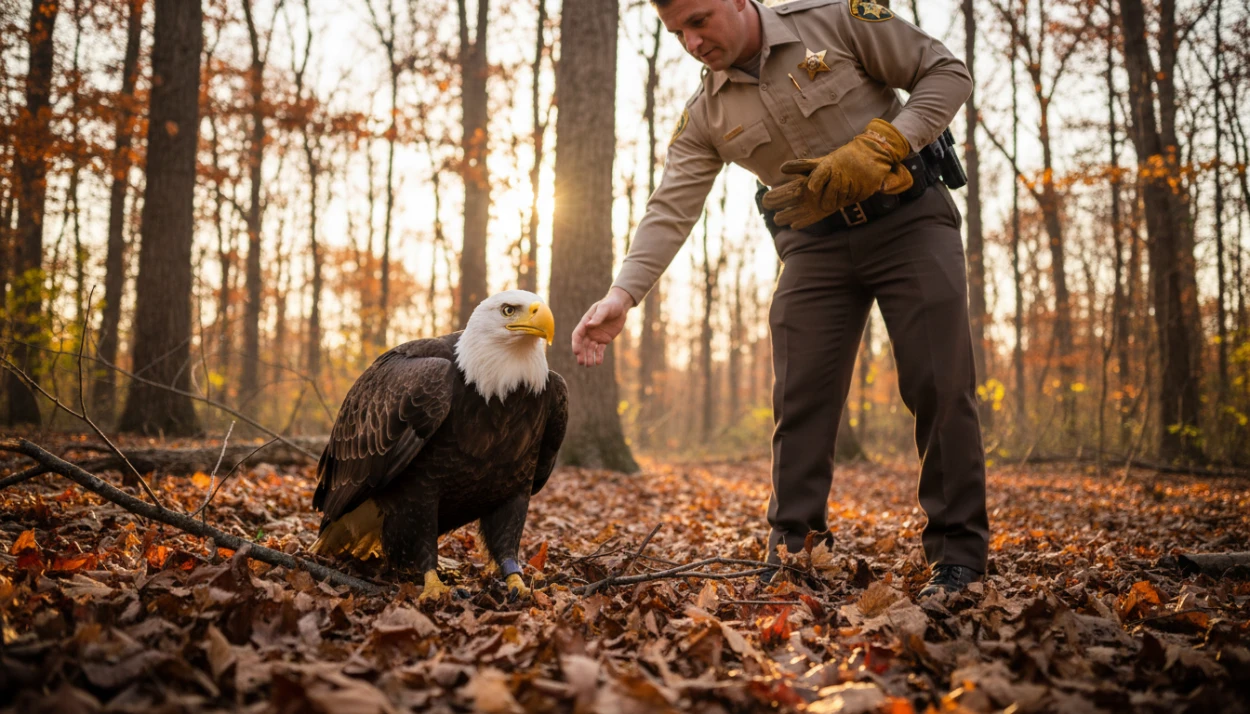Plantain chips have become a popular snack for humans, providing a crispy and flavorful alternative to regular potato chips. As more people focus on health-conscious diets, they may wonder whether their four-legged companions can indulge in this tasty treat as well. In this article, we'll explore the question, "Can dogs eat plantain chips?" and delve into the nutritional aspects, potential risks, and safer alternatives for our canine friends.

Understanding the Nutritional Content of Plantains
Plantains, the starchy, less-sweet cousins of bananas, are rich in essential nutrients. They contain vitamins A, C, and B6, along with minerals like potassium and magnesium. While these nutrients can be beneficial to humans, dogs have different dietary requirements. They are primarily omnivores, and their nutritional needs vary from ours. Therefore, the suitability of plantains for dogs must be assessed carefully.
Potential Health Risks for Dogs
Before sharing plantain chips with your dog, it's crucial to recognize potential hazards. Most commercially available plantain chips are seasoned with salt, oils, or other additives that may not be suitable for canine consumption. The high salt content in such chips can lead to sodium toxicity in dogs, causing symptoms like vomiting, diarrhea, or even seizures. Additionally, certain seasonings and oils can irritate a dog's digestive system, leading to gastrointestinal issues.
Digestive System and Dogs
To better understand how plantain chips may affect dogs, let's briefly examine their digestive system. Dogs have a shorter digestive tract than humans, which means their bodies process food more rapidly. While this enables them to digest raw meats and certain fruits and vegetables, it also makes them susceptible to digestive upsets caused by fatty, salty, or spicy foods.
Safe Alternatives to Plantain Chips
Instead of offering plantain chips, pet owners can explore safer alternatives that still provide delightful snacks for their furry companions. Fresh fruits like apples, bananas (in moderation), and blueberries are excellent choices, as they offer natural sweetness and beneficial nutrients without added seasonings or oils. Moreover, vegetables like baby carrots and green beans can make crunchy and low-calorie treats for dogs.
Moderation is Key
As with any treat, moderation is crucial when giving plantain chips to dogs. While sharing a small piece occasionally might not pose significant risks, overindulgence can lead to health issues. The key is to strike a balance between occasional treats and a well-balanced, nutritious diet that meets a dog's specific needs.
Consulting a Veterinarian
Before introducing any new food into a dog's diet, including plantain chips, it's best to consult a veterinarian. A professional can evaluate your dog's individual health needs and determine whether such treats are suitable. Moreover, they can guide you in making informed decisions about your dog's diet and overall well-being.
Signs of Allergic Reactions
Just like humans, dogs can be allergic to certain foods. If you decide to offer your dog a plantain chip or any new treat, observe their reaction closely. Signs of allergies may include itching, redness, hives, or digestive upset. If any of these symptoms occur, discontinue the treat immediately and seek advice from your veterinarian.
Burstiness and Perplexity in Dog Diets
Dogs, like humans, can experience boredom with their daily diets. Burstiness and perplexity refer to the introduction of variety and surprise in food choices. Introducing new treats, like safe fruits and vegetables, can add excitement to a dog's meals and make feeding time more enjoyable.

The Importance of High-Quality Dog Food
While treats can be a fun addition to a dog's diet, the foundation of their nutrition should be high-quality dog food. Investing in premium dog food brands ensures that your pet receives the right balance of nutrients tailored to their specific requirements.
Incorporating Variety into a Dog's Diet
Apart from treats, it's essential to provide a diverse range of foods to dogs. A balanced diet may include various proteins, carbohydrates, and vegetables, helping to meet their nutritional needs and maintain overall health. However, any dietary changes should be introduced gradually to avoid digestive disturbances.
Training and Rewarding with Treats
Treats, including plantain chips, can be valuable tools in dog training. Positive reinforcement using treats can reinforce desired behaviors. However, it's crucial to use treats sparingly, opting for small, healthy pieces during training sessions.
Personal Stories from Dog Owners
While some dog owners may have tried plantain chips with their pets and had no adverse effects, others may have encountered issues. Personal stories from fellow dog owners can provide valuable insights into individual experiences with plantain chips and other treats. It's essential to remember that each dog is unique, and what works for one may not work for another.
Conclusion
In conclusion, while plantain chips may seem like a tempting snack to share with your dog, caution and careful consideration are essential. While plantains themselves offer beneficial nutrients, commercially available plantain chips often contain seasonings, oils, and high levels of salt that can be harmful to dogs. The canine digestive system is different from humans, and certain foods that are safe for us may not be suitable for our furry friends.
As responsible pet owners, it's crucial to prioritize our dogs' health and well-being. Instead of offering plantain chips, opt for safer alternatives like fresh fruits and vegetables. Apples, bananas (in moderation), blueberries, baby carrots, and green beans are excellent choices that provide natural sweetness and nutrients without unnecessary additives.
Remember that moderation is key when it comes to treating your dog. Treats should complement a well-balanced and nutritious diet, not replace it. Always consult a veterinarian before introducing any new food into your dog's diet, especially if you have concerns about allergies or specific dietary requirements.
Variety and surprise can play a positive role in a dog's diet, promoting burstiness and perplexity. Introducing new treats and rotating food choices can keep mealtimes exciting for your canine companion.
While it's essential to use treats for training and positive reinforcement, be mindful of portion sizes and the overall calorie intake. Focus on rewarding desired behaviors with small, healthy treats, and consider incorporating praise and affection as rewards as well.
Lastly, each dog is unique, and what works for one may not work for another. Personal stories from other dog owners can provide insights, but always keep in mind that your dog's health and needs should guide your decisions.
In the end, by being informed and making thoughtful choices, you can ensure that your furry friend enjoys a happy and healthy life with you, and you both can share many wonderful moments together.
FAQs
1. Can dogs eat bananas?
Yes, dogs can eat bananas in moderation. Bananas are a good source of potassium and vitamins, making them a healthy treat for dogs. However, as with any treat, portion control is essential to prevent digestive issues.
2. Are apples safe for dogs?
Yes, apples are generally safe for dogs to eat. However, it's crucial to remove the seeds and core before offering them to your pet. Apples are rich in fiber and vitamins, and most dogs enjoy the sweet taste.
3. Can I give my dog plantain chips if they are unsalted?
Even unsalted plantain chips can pose risks to dogs due to potential additives and oils used in their preparation. It's best to avoid offering plantain chips altogether and opt for safer alternatives like fresh fruits and vegetables.
4. How often can I give treats to my dog?
Treats should be given in moderation and should not make up more than 10% of your dog's daily caloric intake. Overindulgence in treats can lead to obesity and other health issues, so it's crucial to balance treats with a balanced diet.
5. Are there any fruits or vegetables I should avoid giving my dog?
Yes, some fruits and vegetables can be harmful to dogs. Avoid feeding your dog grapes, raisins, onions, garlic, and avocados, as they can be toxic and cause serious health issues. Always research the safety of any new food before offering it to your pet.
Remember, it's essential to prioritize your dog's health and consult a veterinarian if you have any concerns about their diet or nutrition.









